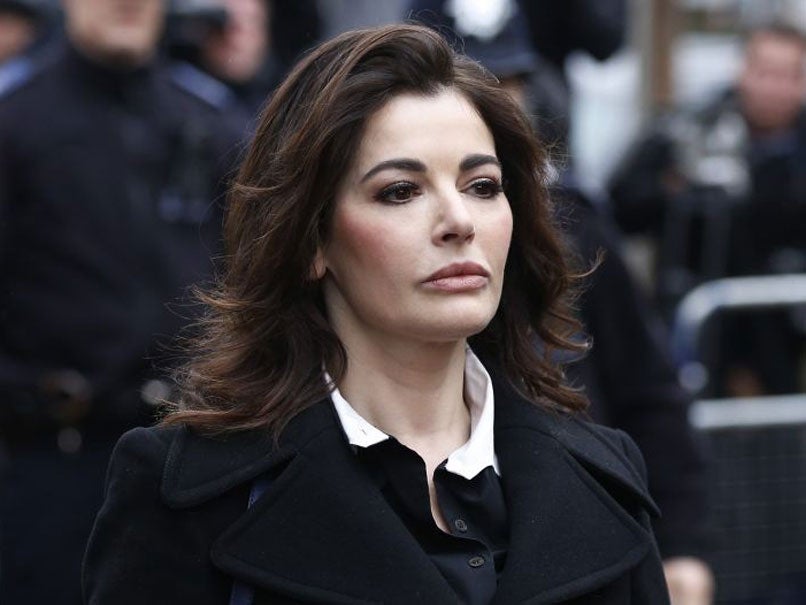Nigella Lawson case: How come celebs aren't stopped and searched?

Your support helps us to tell the story
From reproductive rights to climate change to Big Tech, The Independent is on the ground when the story is developing. Whether it's investigating the financials of Elon Musk's pro-Trump PAC or producing our latest documentary, 'The A Word', which shines a light on the American women fighting for reproductive rights, we know how important it is to parse out the facts from the messaging.
At such a critical moment in US history, we need reporters on the ground. Your donation allows us to keep sending journalists to speak to both sides of the story.
The Independent is trusted by Americans across the entire political spectrum. And unlike many other quality news outlets, we choose not to lock Americans out of our reporting and analysis with paywalls. We believe quality journalism should be available to everyone, paid for by those who can afford it.
Your support makes all the difference.Yesterday morning we were told that Nigella Lawson is not to be investigated for cocaine use. During the trial of her two former aides she had admitted taking the drug, but the police have said she will not be investigated "at this stage". Well there's a thing.
I have no wish for Lawson to be prosecuted, although I vaguely sympathise with the Grillo sisters' barrister who suggested Lawson be regarded in the same way as someone from a council estate. But I'm struck by how few prosecutions of celebrities for possession of cocaine there are. Whom do we prosecute, and why?
Cocaine is a class A drug, and so it is identified formally by our lawmakers as one of the most dangerous. There is no formal "cocaine warning" similar to a cannabis warning. Every year people are cautioned or prosecuted for possession of cocaine. They can be imprisoned.
However, there seems to be some form of class immunity. It's not just celebrities who are immune. What of the middle-class professionals? How many of them use cocaine? How many of them have been prosecuted, with the ensuing harm to pocket, liberty and reputation? They are not going to be stopped by the police in the street. Neither do they behave in any other way that brings them to the attention of the police. So the police never know about their cocaine use.
Prosecution for possession offences can arise from stop and search. The charity Release and the London School of Economics earlier this year published a report which "shows that drug policing is dominating stop and search, that much of this activity is focused on low-level drug possession offences, and that black and Asian people are being disproportionately targeted". But how often have you seen a press report of a celebrity, who is widely rumoured or even admits to using cocaine or addiction, being stopped and searched or otherwise investigated? Well-functioning professionals never cross the police radar. But everything changes if you are someone the police stop and search.
Drug possession also emerges when other criminal offences are being investigated. Is the real evil of cocaine that it causes other problems? Why do we prosecute the addict for drug possession as well as burglary? If it's because cocaine use is inherently a bad thing, we should investigate and prosecute the celebrities and the functioning professionals, as well as the young black men routinely stopped in London boroughs, and the drug-addled burglars. Alternatively, we should only delve into drug use if it's causing some other problem. Otherwise it's one law for those who can afford their habit and behave themselves, and another for those who can't.
If the cocaine use implied by possession is always a bad thing, why do we accept images of glamorous celebrities whose cocaine use is widely discussed but where no criminal enforcement ensues? Maybe we just can't admit what seems to be the truth: that some people with enough money appear to be able to take cocaine on a regular or occasional basis and at the same time pay their taxes, succeed in their professional life and bring up their children. If this is not the case, why are investigations and prosecutions not carried out consistently?
Christina Russell is a former criminal barrister.
Join our commenting forum
Join thought-provoking conversations, follow other Independent readers and see their replies
Comments